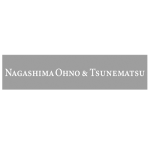A pressing issue in Japan is the ageing population combined with the diminishing birth rate. The Japanese government has been in the dark on how to handle these two elements. At first glance, these two concerns appear to present conflicting demands, namely (i) expanding health and medical services for the elderly, while at the same time; and (ii) minimising the use of public funds for those health and medical services, as a means of tackling the issue. Therefore, in order to deal with this problem, the Japanese government has drawn attention to the use of private resources, such as private funds, including Japanese real estate investment trusts (J-Reits), to provide sufficient monetary resources to the health and medical care industries through the acquisition of their assets.
In June 2013, the Prime Minister of Japan and his cabinet unveiled the Japan Revitalisation Strategy, under which the Japanese government would develop, disseminate and also provide education on, guidelines for the acquisition and operation of housing, and so on, for people including the elderly by private funds such as healthcare J-Reits. Subsequently, in January 2014, the cabinet of Japan approved its Industrial Competitiveness Enhancement Action Plan. The plan outlined how the Japanese government would improve services for disease prevention to enhance people's life expectancy by curbing expenditure connected with health and medical costs in Japan and providing health and medical care of a higher quality.
As part of their efforts to put these plans into action, in June 2014, the Ministry of Land, Infrastructure and Transport (MLIT) released the Guidelines on Acquisition by J-Reits of Housing for the Elderly, and in June 2015, the Guidelines for Acquisition by J-Reits of Real Estate for Use as Hospitals, which clarify in detail the measures and matters to be noted in the acquisition by J-Reits of such assets.
In addition, in April 2017, amendments to the Medical Care Act of Japan came into force. In the main, these amendments are as follows: (i) the creation of a community-based healthcare promotion corporation system; (ii) improved transparency and a strengthened governance system of medical corporations; and (iii) the introduction of provisions pertaining to the splitting up of medical corporations.
Due to limitations of space, a detailed discussion of these amendments is not possible here. However, improving the transparency and strengthening the governance system of medical corporations is of paramount importance, through both the management of medical corporations and the provision of funds by private entities such as J-Reits to medical corporations via the acquisition of their assets.

|
Hiroshi Hasegawa |
Nagashima Ohno & Tsunematsu
JP Tower, 2-7-2 Marunouchi, Chiyoda-ku, Tokyo 100-7036, Japan
T: +81-3-6889-7000
F: +81-3-6889-8000

